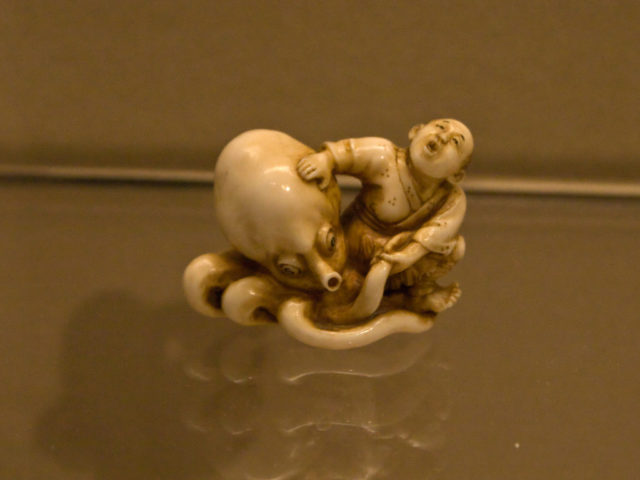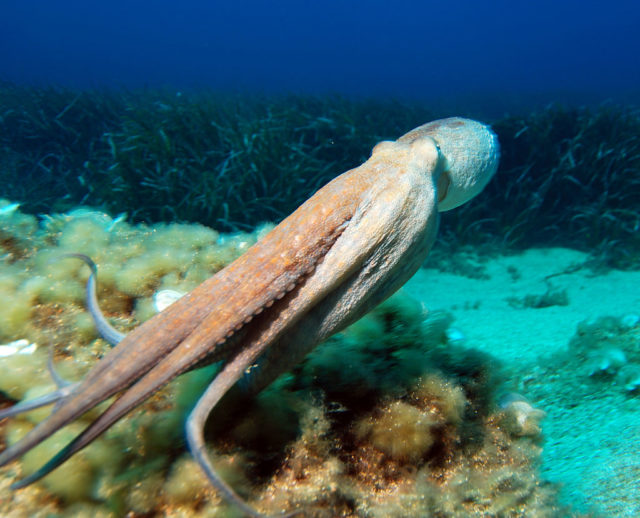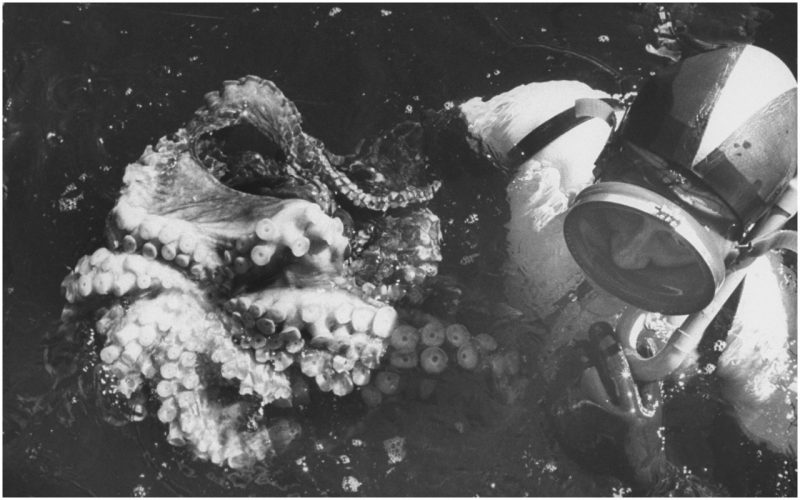Many unconventional sports flourished in the past but were abandoned because they were unpopular, unsafe, or led to the suffering of animals.Examples include duels with pistols, solo synchronized swimming, and tug-of-war. There was another sport that was probably interesting for the spectators but was dangerous for the competitors and could be fatal for the target. This sport was octopus wrestling, popular in the United States around the middle of the last century.
If they could express their views to us, many octopus might say they’re not crazy about the trend of serving grilled tentacles as an appetizer at fine restaurants. But it is just as objectionable that someone would come up such a cruel and totally inhumane way of entertaining. Just six decades ago, the bizarre spectacle known as octopus wrestling was a reality and it could even attract up to 5,000 spectators.
The first written account of octopus wrestling was in 1949, in Mechanix Illustrated magazine. The article, “Octopus Wrestling Is My Hobby,” was written by Wilmon Menard, who talked about his trip to Tahiti, where he joined a local hunter in his clash with a giant octopus.
“Like to wrestle an octopus? I realize it all sounds like a loathsome sport but it’s really more fun than hunting some poor harmless creature. When you wrestle and kill an octopus, you’re ridding the marine world of a treacherous enemy,” Menard wrote.
“And you’d better watch your step, too. For there’s no such thing as a reckless octopus hunter. You’re careful or you’re dead,” he concluded.

The bizarre sport slowly gained popularity across the U.S., reaching the West Coast. Octopus wrestling events held in Tacoma, Washington, over the next decade attracted more and more wrestlers and spectators. According to an article published in a 1957 edition of the Toledo Blade, around 200 people showed up to witness the world championship octopus wrestling match in Tacoma that year.
Octopus wrestling reached the height of its popularity in the early 1960s and according to most reports, one of the annual World Octopus Wrestling Championships drew over 5,000 spectators. Luckily for the octopuses, these events were not nearly as bloody as Wilmon Menard’s clash with the giant octopus in Tahiti back in 1949.
The sport involved a team of divers who would descend into the water at depths up to 60 feet, where they would encounter the octopus in its den. The teams consisted of two or three men who would struggle to get free of the tentacles of the animal and drag the octopus to the surface.
“They have good suction, but if you get their arms, and pull, the suction cups go pop, pop, pop. They don’t have a lot of holding strength,” Gary Keffler, one of the organizers of the event, told The Seattle Times.
The suction cups made the sport difficult and dangerous, and it could take a long time to get the animal up into the open air. Once it was out, the octopus would be measured on a scale, and the team with the biggest animal would win the competition.

Once the competition was over, most of the octopuses were released back into the ocean and some were given to the Seattle Aquarium.
The sport’s popularity faded by the mid-1960s, when people slowly lost interest in octopus wrestling.
The final blow to octopus wrestling was given by the State of Washington, which passed a law that forbade the harassing of octopus.
